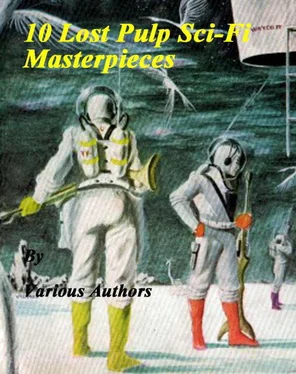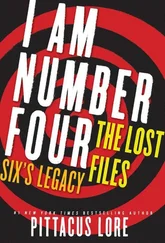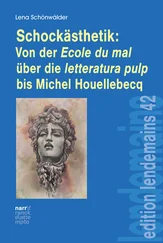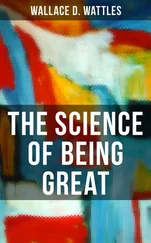F. Wallace - 10 Lost Pulp Sci-Fi Masterpieces
Здесь есть возможность читать онлайн «F. Wallace - 10 Lost Pulp Sci-Fi Masterpieces» весь текст электронной книги совершенно бесплатно (целиком полную версию без сокращений). В некоторых случаях можно слушать аудио, скачать через торрент в формате fb2 и присутствует краткое содержание. Город: Baltimore, Md., Год выпуска: 2010, Издательство: Publisher of One, Жанр: Фантастика и фэнтези, на английском языке. Описание произведения, (предисловие) а так же отзывы посетителей доступны на портале библиотеки ЛибКат.
- Название:10 Lost Pulp Sci-Fi Masterpieces
- Автор:
- Издательство:Publisher of One
- Жанр:
- Год:2010
- Город:Baltimore, Md.
- ISBN:нет данных
- Рейтинг книги:3 / 5. Голосов: 1
-
Избранное:Добавить в избранное
- Отзывы:
-
Ваша оценка:
- 60
- 1
- 2
- 3
- 4
- 5
10 Lost Pulp Sci-Fi Masterpieces: краткое содержание, описание и аннотация
Предлагаем к чтению аннотацию, описание, краткое содержание или предисловие (зависит от того, что написал сам автор книги «10 Lost Pulp Sci-Fi Masterpieces»). Если вы не нашли необходимую информацию о книге — напишите в комментариях, мы постараемся отыскать её.
Plus, classic, pulp illustrations of beautiful—dare I say it—buxom babes!
You will find these and more in this collection of lost, sci-fi pulp masterpieces.
10 Lost Pulp Sci-Fi Masterpieces — читать онлайн бесплатно полную книгу (весь текст) целиком
Ниже представлен текст книги, разбитый по страницам. Система сохранения места последней прочитанной страницы, позволяет с удобством читать онлайн бесплатно книгу «10 Lost Pulp Sci-Fi Masterpieces», без необходимости каждый раз заново искать на чём Вы остановились. Поставьте закладку, и сможете в любой момент перейти на страницу, на которой закончили чтение.
Интервал:
Закладка:
“Looks like a bull session is in order, gents. Assembly in five minutes in my office.”
As he and Showalter opened the door to Miss Cardston’s office and strode in, the secretary looked up with a start. “I thought you were going to meet in the conference room.”
“We’ve met,” said Hockley. “This is the aftermeeting. Send out for a couple of cases of beer.” He glanced at the number surging through the doorway and fished in his billfold. “Better make it three. This ought to cover it.”
With disapproval, Miss Cardston picked up the bills and turned to the phone. Almost simultaneously there was a bellow of protest and an enormous, ham-like hand gripped her slender wrist. She glanced up in momentary fright.
Dr. Forman K. Silvers was holding her wrist with one hand and clapping Hockley on the back with the other. “This is not an occasion for beer, my boy!” he said in an enormous voice. “Make that a case of champagne, Miss Cardston.” He released her and drew out his own billfold.
“Get somebody to bring in a couple of dozen chairs,” Hockley said.
In his own office he walked to the window behind his desk and stood facing it. The afternoon haze was coming up out of the ocean. Faintly visible were the great buildings of the National Laboratories on the other side of the city. Above the mist the sun caught the tip of the eight story tower where the massive field tunnels of the newly designed gammatron were to be installed.
Or were to have been installed.
The gammatron was expected to make possible the creation of gravitational fields up to five thousand g’s. It would probably be a mere toy to the Rykes, but Hockley felt a fierce pride in its creation. Maybe that was childish. Maybe his whole feeling about the Lab was childish. Perhaps the time had come to give up childish things and take upon themselves adulthood.
But looking across the city at the concrete spire of the gammatron, he didn’t believe it.
He heard the clank of metal chairs as a couple of clerks began bringing them in. Then there was the clink of glassware. He turned to see Miss Cardston stiffly indicating a spot on the library table for the glasses and the frosty bottles.
Hockley walked slowly to the table and filled one of the glasses. He raised it slowly. “It’s been a short life but a merry one, gentlemen.” He swallowed the contents of the glass too quickly and returned to his desk.
“You don’t sound very happy about the whole thing,” said Mortenson, a chemist who wore a neat, silvery mustache.
“Are you overjoyed,” said Hockley, “that we are to swap the National Lab for a bottomless encyclopedia?”
“Yes, I think so,” said Mortenson. “There are some minor objections, but in the end I’m certain we’ll all be satisfied with what we get.”
“Satisfied! Happy!” exclaimed the mathematician, Dr. Silvers. “How can you use words so prosaic and restrained in references to these great events which we shall be privileged to witness in our lifetimes?”
He had taken his stand by the library table and was now filling the glasses with the clear, bubbling champagne, sloshing it with ecstatic abandon over the table and the rug.
Hockley glanced toward him. “You don’t believe, then, Dr. Silvers, that we should maintain any reserve in regard to the Rykes?”
“None whatever! The gods themselves have stepped down and offered an invitation direct to paradise. Should we question or hold back, or say we are merely happy. The proper response of a man about to enter heaven is beyond words!”
The bombast of the mathematician never failed to enliven any backroom session in which he participated. “I have no doubt,” he said, “that within a fortnight we shall be in possession of a solution to the Legrandian Equations. I have sought this for forty years.”
“I think it would be a mistake to support the closing of the National Laboratories,” said Hockley slowly.
As if a switch had been thrown, their expressions changed. There was a sudden carefulness in their stance and movements, as if they were feinting before a deadly opponent.
“I don’t feel it’s such a bad bargain,” said a thin, bespectacled physicist named Judson. He was seated across the room from Hockley. “I’ll vote to sacrifice the Lab in exchange for what the Rykes will give us.”
“That’s the point,” said Hockley. “Exactly what are the Rykes going to give us? And we speak very glibly of sharing their science. But shall we actually be in any position to share it? What becomes of the class of scientists on Earth when the Lab is abandoned?”
Wilkins stood abruptly, his hands shoved part way into his pockets and his lower jaw extended tensely. “I don’t believe that’s part of this question,” he said. “It is not just we scientists who are to share the benefits of the Rykes. It is Mankind. At this time we have no right to consider mere personal concerns. We would betray our whole calling—our very humanity—if we thought for one moment of standing in the way of this development because of our personal concern over economic and professional problems. There has never been a time when a true scientist would not put aside his personal concerns for the good of all.”
Hockley waited, half expecting somebody to start clapping. No one did, but there were glances of self-righteous approval in Wilkins’ direction. The biologist straightened the sleeves of his coat with a smug gesture and awaited Hockley’s rebuttal.
“ We are Mankind,” Hockley said finally. “You and I are as much a part of humanity as that bus load of punch machine clerks and store managers passing on the street outside. If we betray ourselves we have betrayed humanity.
“This is not a sudden thing. It is the end point of a trend which has gone on for a long time. It began with our first contacts beyond the galaxy, when we realized there were peoples far in advance of us in science and economy. We have been feeding on them ever since. Our own developments have shrunk in direct proportion. For a long time we’ve been on the verge of becoming intellectual parasites in the Universe. Acceptance of the Ryke offer will be the final step in that direction.”
Instantly, almost every other man in the room was talking at once. Hockley smiled faintly until the angry voices subsided. Then Silvers cleared his throat gently. He placed his glass beside the bottles on the table with a precise motion. “I am sure,” he said, “that a moment’s thought will convince you that you do not mean what you have just said.
“Consider the position of pupil and teacher. One of Man’s greatest failings is his predilection for assuming always the position of teacher and eschewing that of pupil. There is also the question of humility, intellectual humility. We scientists have always boasted of our readiness to set aside one so-called truth and accept another with more valid supporting evidence.
“Since our first contact with other galactic civilizations we have had the utmost need to adopt an attitude of humility. We have been fortunate in coming to a community of worlds where war and oppression are not standard rules of procedure. Among our own people we have encountered no such magnanimity as has been extended repeatedly by other worlds, climaxed now by the Ryke’s magnificent offer.
“To adopt sincere intellectual humility and the attitude of the pupil is not to function as a parasite, Dr. Hockley.”
“Your analogy of teacher and pupil is very faulty in expressing our relation to the Rykes,” said Hockley. “Or perhaps I should say it is too hellishly accurate. Would you have us remain the eternal pupils? The closing of the National Laboratories means an irreversible change in our position. Is it worth gaining a universe of knowledge to give up your own personal free inquiry?”
Читать дальшеИнтервал:
Закладка:
Похожие книги на «10 Lost Pulp Sci-Fi Masterpieces»
Представляем Вашему вниманию похожие книги на «10 Lost Pulp Sci-Fi Masterpieces» списком для выбора. Мы отобрали схожую по названию и смыслу литературу в надежде предоставить читателям больше вариантов отыскать новые, интересные, ещё непрочитанные произведения.
Обсуждение, отзывы о книге «10 Lost Pulp Sci-Fi Masterpieces» и просто собственные мнения читателей. Оставьте ваши комментарии, напишите, что Вы думаете о произведении, его смысле или главных героях. Укажите что конкретно понравилось, а что нет, и почему Вы так считаете.












